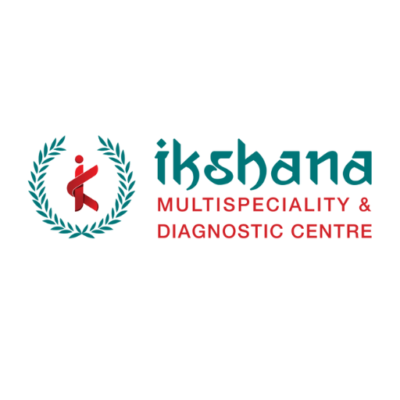Ikshana Multispeciality and Diagnostic Centre
Stay Healthy and Active with Ikshana Multispeciality and Diagnostic Centre
This banner focuses on the preventive care services offered at Ikshana Multispeciality and Diagnostic Centre. It encourages patients to prioritize their health and well-being by seeking regular check-ups and screenings at the center.

Diagnostic Services
Diagnostic Services
At Ikshana multispeciality and diagnostic center, we offer a wide range of diagnostic services to help diagnose and treat various medical conditions. Our state-of-the-art facilities and equipment, combined with our team of highly trained professionals, ensure that you receive the most accurate and reliable diagnostic testing available.
Our diagnostic services include:
- Imaging: We offer various imaging services, including X-rays, ultrasounds, CT scans, and MRIs, to help diagnose and monitor conditions affecting different parts of the body.
- Laboratory testing: We offer comprehensive laboratory testing to help diagnose a variety of conditions, including blood tests, urine tests, and genetic testing.
- Cardiology testing: Our cardiology testing includes electrocardiograms (ECGs), stress tests, echocardiograms, and Holter monitoring to help diagnose and monitor heart conditions.
- Pulmonary function testing: We offer pulmonary function testing, including spirometry and other breathing tests, to help diagnose and manage respiratory conditions.
- Endoscopy and colonoscopy: We offer endoscopy and colonoscopy services to help diagnose and treat gastrointestinal conditions.
At Ikshana multispeciality and diagnostic center, we are committed to using the latest technology and techniques to provide the most accurate and reliable diagnostic services possible. Our team of experts works closely with your primary care physician and specialists to ensure that you receive the most effective treatment possible.
Contact us today to schedule a diagnostic test and take the first step towards optimal health.
FAQ
Most frequent questions and answers
A. A diagnostic is an assessment or evaluation process used to identify the presence, nature, or extent of a problem or condition.
A. There are various types of diagnostics, including medical diagnostics, educational diagnostics, and technical diagnostics. Medical diagnostics are used to identify and diagnose medical conditions or diseases, educational diagnostics are used to assess a student’s learning needs and abilities, and technical diagnostics are used to identify and troubleshoot problems with machines or systems.
A. The process of performing a diagnostic can vary depending on the type of diagnostic being conducted. For medical diagnostics, the process may involve a physical exam, medical tests, and imaging scans. Educational diagnostics may involve assessments, standardized tests, and observations of a student’s behaviour and learning style. Technical diagnostics may involve running diagnostic tests on software or hardware, analyzing data logs, and using specialized diagnostic equipment.
A. The professionals who perform diagnostics can vary depending on the type of diagnostic being conducted. For medical diagnostics, doctors and medical professionals perform the assessment. For educational diagnostics, school psychologists, learning specialists, or educational consultants may conduct assessments. For technical diagnostics, engineers, IT professionals, or technicians may perform the analysis.
A. Diagnostics are important because they help identify the root cause of a problem or condition, which enables the development of effective solutions or treatments. Diagnostics are also used to monitor the progression of a problem or condition and evaluate the effectiveness of interventions.
A. Challenges associated with diagnostics can include issues related to accuracy, reliability, and accessibility. Diagnostics may also be time-consuming and expensive, and the results of a diagnostic may not always be conclusive. Additionally, there may be cultural or linguistic barriers that can impact the effectiveness of a diagnostic.
